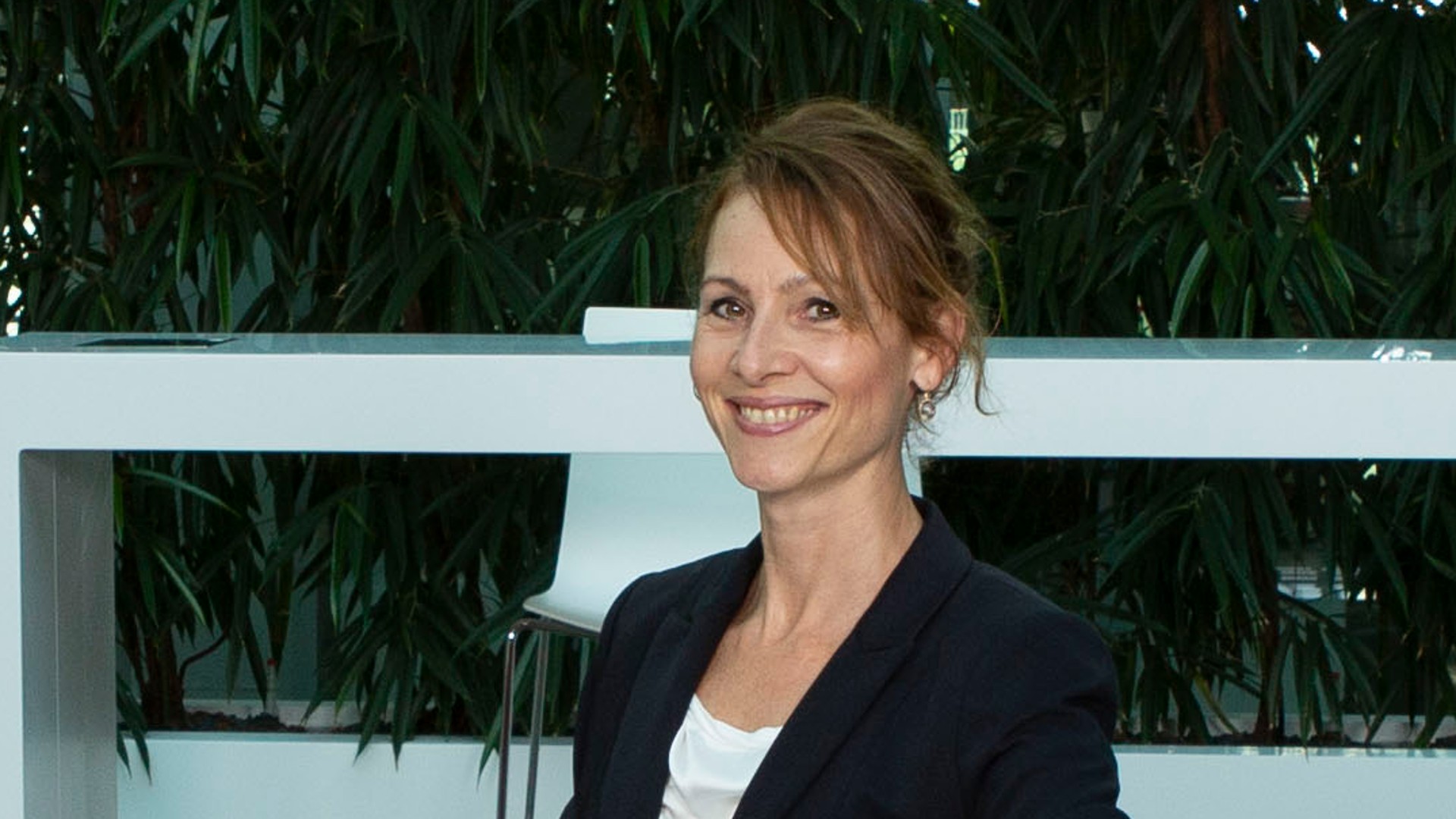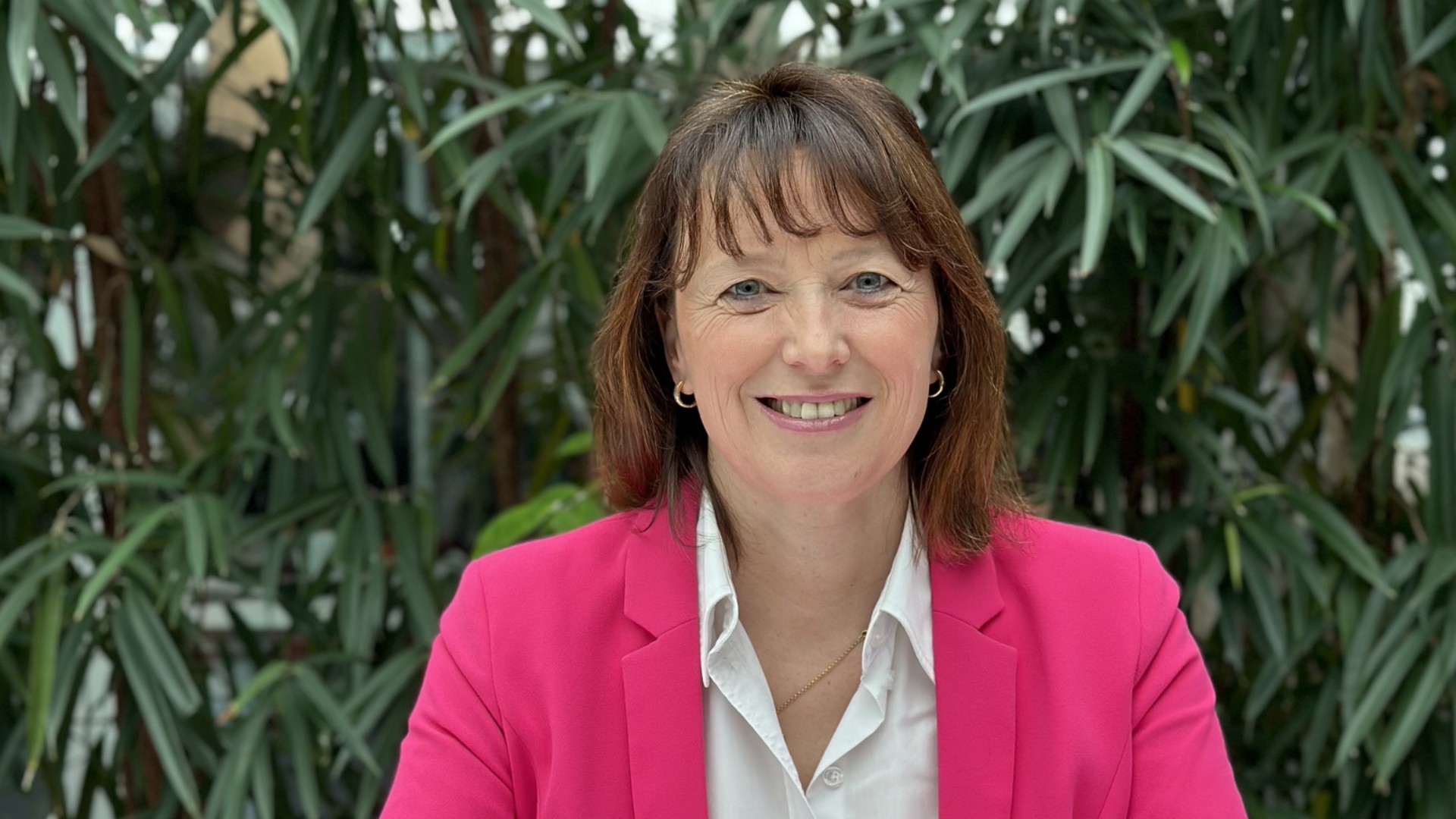
To mark this year's International Women's Day, we want to honor the female role models who inspire and motivate us to achieve greater things. At Knorr-Bremse we are proud to have many incredible female role models who are making a positive impact in their fields, leading teams, innovating and breaking barriers. To mark International Women's Day, we spoke to our colleagues Jasmina Brackovic, Carina Smid, Alexandra Friedrich, Nancy Xia and Corinne Ask about female role models and their role.
Why do we need female role models?
Jasmina Brackovic: Role models play a very important part in developing our own personalities and choosing our future careers. They inspire and motivate us to step out of our comfort zones and accomplish something more significant. By successfully achieving something that seemed far out of reach, they show us it’s possible to reach goals that at first glance appear unattainable by steadily pursuing them and developing our own abilities. This is especially important for women, because they so often have to overcome so-called gender norms, meaning society’s preconceptions about how women should behave and what kinds of jobs they should have.
Carina Smid: I’m not sure we really need female (or male) role models. What we do need are stories and snapshots of strong, interesting, self-confident women. Stories that inspire us and give us a frame of reference – that stimulate us and give us new perspectives on what we can influence and change ourselves.
Alexandra Friedrich: We need role models we can identify with in every area of life – so in a professional context, we also need female role models. They help us visualize the goals and behaviors we set, give us courage, and motivate us to take new paths or make changes. That’s why female role models are indispensable in male-dominated areas, especially for women.
Nancy Xia: In Asia, social norms put too high expectations on women, not only in terms of career, but also in terms of marriage and family obligations, especially in China for women born in the period of the one-child policy. Under such external circumstances, female role models provide good examples of how women can balance their careers and lives well, and how far they can go through their own efforts and self-development. It will enlighten and inspire women in their confusion.
Corinne Ask: Female role models represent and expand what is possible. Having female role models encourages other women to aim higher, be ambitious and shows that opportunities are limitless. A role model presents positive learned behaviors and encourages constructive actions. Over time, women have fought to gain more rights and emulated positive stances within the workforce, and this is something I am passionate about.

It needs stories and experiences of fascinating, strong and self-confident women. Stories that inspire, that give orientation, that provide impulses and other perspectives in one's own sphere of influence.
Carina Smid – Head of Marketing Rail
How have female role models influenced your career?
Jasmina Brackovic: I’m lucky enough to have grown up in a family full of strong women! My grandmother, for example, was managing director of the biggest shopping mall in Sarajevo; my other grandmother was a dressmaker, my aunt is a doctor, and my mother is a well-known journalist and PR manager who’s earned many awards for her work. So I never had any sense that there should be one kind of career for men and another for women. I loved math, so for me, a degree in electrical engineering was the obvious way to go. Only while I was studying and later, when I embarked on my career, did I realize that being a woman engineer is still somewhat unusual. Very often, I’m the only woman in the room.
Carina Smid: In truth, I’ve never had an actual role model – female or male. Instead, I’ve admired and been repeatedly inspired by certain personalities and life journeys. My mother, for example, is someone I regard as a trailblazer: A woman with two children who worked as a matter of course and without big words, stood square on her own two feet, and was able to make her own decisions. Her determination and independence were very strong motivators in my own personal development.
I was also fascinated by various female athletes. My own background is in swimming and track and field, and I was very impressed by the grit and perseverance of, for example, Franziska van Almsick and Heike Drechsler.
Alexandra Friedrich: In my family and among my friends, I had some amazing role models who showed me how you should go your own way – the way you’ve searched out for yourself – and shouldn’t allow yourself to be intimidated by prejudices and social obstacles. I really wanted to become an engineer, stand on my own feet and also have a family. If I hadn’t had the support and encouragement of my mother and sister, as well as the examples they gave me by the way they led their own lives, I probably wouldn’t have chosen the career I have now, which I enjoy very much.
Nancy Xia: I grew up in a single-parent family; my father died when I was very young. My mother, a teacher at a primary school in the countryside, raised three young daughters with her very small income. Although our life was pretty tough, the family care was quite warm and encouraging. What I learned from my mother is that we as women can take as much responsibility as men, that by our persistence and dedication, by our courage and self-confidence, we will enjoy freedom both at work and in life.

In my family I had great female role models who showed me that you should go your own way and not be intimidated by prejudices.
Alexandra Friedrich – Head of Global Project Management Office
What typically defines a female role model?
Jasmina Brackovic: I’ve always been fascinated by women who – despite all obstacles and social norms – go their own way, like Simone de Beauvoir, Ruth Bader Ginsburg, Marie Curie, Janis Joplin, Hellen Keller, Frida Kahlo, and so on. You need plenty of determination and perseverance to achieve your personal goals, as well as self-confidence so you can withstand the headwinds you’ll encounter and not be upset by them – and so you can take responsibility for yourself and your actions, even if things don’t go quite the way you imagined.
Carina Smid: Authenticity, a willingness to shape and change things, independence and a sense of responsibility are all key attributes of – if we’re going to call it that – a female role model. I’d also describe them as my own values. Oh, and let’s not forget a good sense of humor.
Alexandra Friedrich: For me, female role models are always authentic, self-confident and independent. They’re people who focus on their female strengths, are high achievers, don’t rely on recruitment quotas and are proud of being a women. To me, tackling issues and being a "doer" despite the social norms and environment is very inspiring.
Nancy Xia: In my eyes, female role models are lifelong learners. They keep self-discipline inwardly and curiosity outwardly. They are decisive and responsible, and they are generous and passionate. They are always willing to sacrifice themselves for the team or for the advantage of others.
Corinne Ask: I see a female role model as someone who positively impacts others through motivation, inspiration, and support. A role model encourages others to grow and develop.

I have always been fascinated by women who go their own way despite all obstacles and social norms. I am lucky to have grown up in a family full of strong women who taught me exactly that.
Jasmina Brackovic – R&D Project Manager Innovation Partnerships
What kind of role model are you, or would you like to be?
Jasmina Brackovic: I’ve stayed true to my role models by choosing to go my own way. I’ve always been a very curious person, interested in lots of different things – music, literature, psychology, business. But the war in my country meant I had very few opportunities to satisfy my curiosity, because many libraries were burned down, and the infrastructure was destroyed. That’s why I taught myself English and German at a very early stage. For me, these language skills opened the door to a whole new world of opportunity. Then, when I wanted to travel as a student but was unable to do so because of visa regulations and financial issues, I did more research and started applying for various student conventions and conferences that offered scholarships to people like me. This allowed me to travel around Europe and meet people from various cultures. And these experiences taught me that there’s almost always a way to fulfill your dreams if you’re tenacious enough. But you’ve also got to be willing to make compromises: For the sake of my career, I had to leave my home country, family and friends, and start a new life in a foreign country. That was very tough – but I’d do it all over again.
I enjoy telling my story, especially to young people who, like me, come from war zones and/or disadvantaged countries, so I can pass on the same message: Dare to go your own way, even if you can’t see any immediate prospects – don’t give up, and keep looking.
Carina Smid: As I said, “role model” isn’t really the right way to describe me. I’d like to embody and champion the values that are important to me personally, which have proved to be the most significant and worthwhile guiding stars in my own life. These are what I try to live up to in my various roles as mother of three (nearly grown-up) daughters, as colleague, as mentor, as athlete, and in my relationships with my friends.
Alexandra Friedrich: I try to set a good example for my children (two girls, one boy), as a colleague and as a manger and help them understand that we each need to make our own contribution to diversity – women as well as men. Because all forms of diversity enrich you and help you broaden your personal horizons. That’s why you should be open and tolerant, but also aware that there will always be differences and prejudices, so you can learn to deal with them and get rid of your own preconceptions.
Nancy Xia: I enjoy the moments when my team members and peers tell me how much they can rely on me, and feel happy when my daughter says: I'm proud of you, Mom.
Corinne Ask: At work, I try to set an example for my team. I encourage my team to have a voice, to develop and never stop learning. Opportunities are limitless. I also encourage my team to grow and follow their passion. Not only do I provide my team with opportunity, but I also believe that you grow through challenge and experience. I provide my team with challenging opportunities while mentoring them through the tasks at hand. I think it is important to mentor but to also learn from my mentees; the role of a mentor is a two-way street.